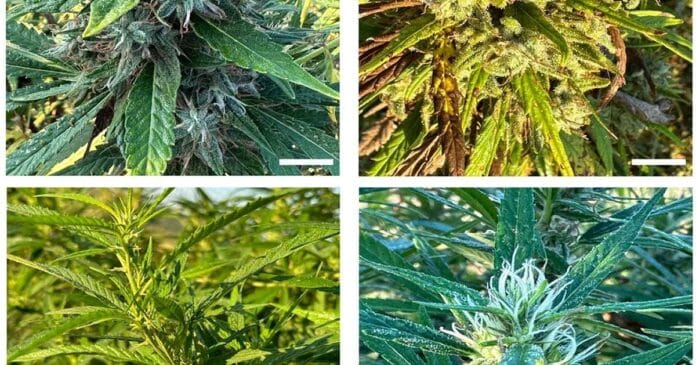A study of hemp has suggested customised mixtures of helpful microbes could help plants produce more cannabidiol (CBD) or have better-quality fibers.
One of the positive attributes of hemp is that it doesn’t require as many agricultural inputs such as chemicals as some crops – but that doesn’t mean none.
Hemp’s resilience is partly due to the plant’s microbiome (community of micro-organisms), which helps it absorb nutrients and deal with environmental stressors. One of the ways it copes with the latter is through the production of cannabinoids, some of which are thought to help ward off pests and disease; or are somehow involved in doing so.
A University of Houston study of hemp microbes examined microbiomes living in and around the roots and on the leaves of four types of hemp plants grown in field conditions. The types involved were Sweet Sensi, Cherry Wine, American Victory-1, and one unknown industrial hemp genotype.
The results from all samples showed that over 1,900,000 bacterial genera raw ASVs (amplicon sequence variants) and over 4,200,000 fungal raw ASVs comprised 469 different genera were present.
The researchers found microbiome diversity was significantly different in soil, root, leaf and stem. Leaves and stems had higher fungal diversity, while roots and soil had higher bacterial diversity.
They also found certain bacteria such as Sphingomonas, Pseudomonas and Bacillus, and fungi including Alternaria and Gibberella proliferated in fiber hemp plants. Microbacterium, Rhizobium, Penicillium and Nigrospora were more abundant in CBD producing hemp. The findings suggest specific genotypes of hemp recruit specialized microbial communities across different spheres of association.
The findings also suggest that these endophytic (living within a plant) microorganisms may have a major role in impacting CBD production and fiber. Matching groups to the plant’s commercial purpose and integrating them could result in better outcomes – increased yields and quality.
“Understanding these microorganisms can also lead to more sustainable farming methods, using nature to boost plant growth instead of relying heavily on chemicals,” said Waqar Ahmad, lead author of the study.
The study, titled: “Microbiome diversity and variations in industrial hemp genotypes” has been published in the journal Nature.


